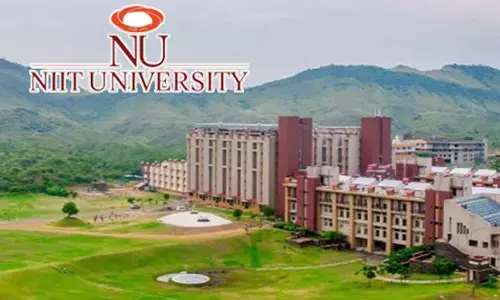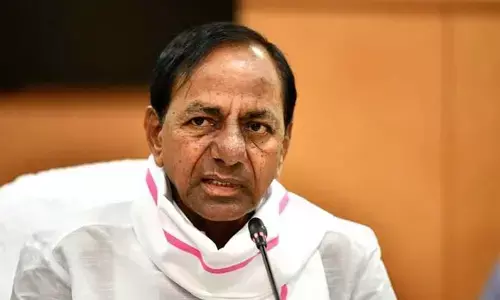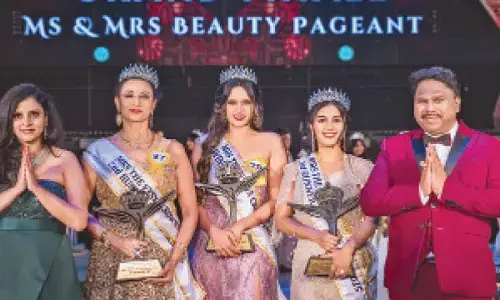Need for political regulator

Some of leaders of Congress party have urged Priyanka Gandhi to lead them. It is a matter of fact that Congress could not get strength enough to become the Leader of Opposition in Lok Sabha.
Some of leaders of Congress party have urged Priyanka Gandhi to lead them. It is a matter of fact that Congress could not get strength enough to become the Leader of Opposition in Lok Sabha. Nation need not be reminded that Priyanka’s mother and brother are President and Vice-Presidents. Recently, there is a change of President of Bharatiya Janata Party (BJP). As the former president was sworn in as Minister in the Narendra Modi cabinet, Amit Shah has become the new president of that party.
Indian National Congress (INC) and BJP are the biggest political parties in the Indian democracy. The INC is the oldest also. The Jana Sangh, which merged into Janata Party in post-Emergency political scene of the nation, has emerged as the BJP after 1978.
Democratic operation and large size are similarities between INC and BJP. There is one major difference. While a variety of persons from different states could get elected to the chair of BJP President, the Congress has been mostly ruled by the Nehru-Gandhi family members with a few exceptions.
A political party which offers to represent people should be committed to democracy. Why should people select a family firm to represent them in power? Inner democracy and equal possibility for any person to become the leader of the party are the basic democratic characters of every political party which take oath to act as per the Constitution which, along with the Representation of Peoples Act, mandates democracy.
Demand to bring another member of ruling family to lead the party does not reflect a democratic character at all. Critics have got enough chance now to say that the second line leadership is totally missing and internally the Congress party is not democratic. It reflects leadership crisis or shortage of solvency. It could also mean insult to the existing leadership. Power is the only cementing factor for most of the parties. Priyanka suffers no disqualification or even may prove better than the present leaders. But the issue is: what is the structural frame a party devises for electing its leader? When Narendra Modi was elected by the BJP as the Prime Ministerial candidate, media asked to know who was the candidate for Prime Minister from the Congress Party. A decade-long non-Gandhi-Nehru Prime Minister Manmohan Singh withdrew himself from the contest. Rahul Gandhi said, “we follow democratic process. Elected members of Parliament will elect their leader who would become Prime Minister.” It’s surely a statement that embodied an important characteristic of democracy. What does party’s constitution (if they have any) say about the election of the president of the party? How many years a single person or family member can hold that seat?
A senior leader of Aam Aadmi Party questioned recently the President Kejriwal’s ability to lead. This question is received and the questioner is not suspended. In the present scenario it is very difficult to say which party is not being led by the members of family. The residential house of family becomes seat of power and often the dining room of President’s house gets converted into politburo or working committee. Parties have become private shops of individuals. President is like the Kartha of a Hindu Undivided Family (HUF), which exist only for tax exemptions. Differing or dissenting members can go out and start their own political outfits.
The people also took it for granted that family heads have right to lead the party. Their young sons who just graduated from a foreign college straight away walk into party estate like the prince. Does it fit into the definition of a political.
If the family that rules the party is elected, that family alone would rule the nation. Because of this single man or family rule in the party, second leaders would not emerge. Most of political parties are suffering from this kind of leadership crisis. MPs prefer to be loyal to party president who gave them tickets and funds, instead of objectively being loyal to people. Party president thus becomes unquestioned monarch and dictatorship gets established through so-called democratic elections without any responsibility. Sycophancy and family rule are inseparable cousins. Irony is that these hypocrites propose electoral reforms posing themselves to be democratic ‘intellectuals’.
There is no need to research to say that barring BJP and Left parties, most of the political parties in India are family-ruled corporate entities without any internal democracy. The Company Law insists democratic functioning of the Board and independent role of the directors in board meetings. If they are not pluralist in their structure how do they sustain pluralist character of democracy? No doubt, political parties are private associations but they are critical means through which citizens participate in their government and the representative democracy is realised.
If inducing people to vote on the plank of religion, caste etc is a corrupt practice, why not the invocation of votes by family-ruled political party be not considered as a corrupt practice? If political parties are entitled to equal opportunity to compete for the leadership of the nation, why don’t the parties facilitate same equality of opportunity to compete for the leadership of the party?
There is no authority which oversees the ‘inner democracy’ of a political party. For an ordinary cooperative society, the registrar sends an official representative to supervise the ‘election’ and if not, supersedes the leadership to appoint ‘administrator’ to take care of its affairs. That does not happen in a political party. They pledge allegiance to Constitution of India, which is democratic, but do not practise representative democracy in internal elections. Though it is a clear violation of party’s constitution and the Constitution of India, there are no consequences for that wrong. There is not even imposition of any penalty. Till a political party regulator is constituted, the Election Commission of India should be given authority to impose huge penalties against political parties which do not elect their Presidents. As a matter of rule, lack of representational legitimacy should invite fines. The inner party democracy should be a significant aspect of regulation. If the party does not have a declared criterion for members, leaders and the candidates, it should attract regulatory restrictions. Every party should be obligated to non-violence, follow inner party democracy and profess allegiance to Constitution of India through its constitution, if not they should be penalised and disqualified in a limited way without leading to de-registration of that party.

















